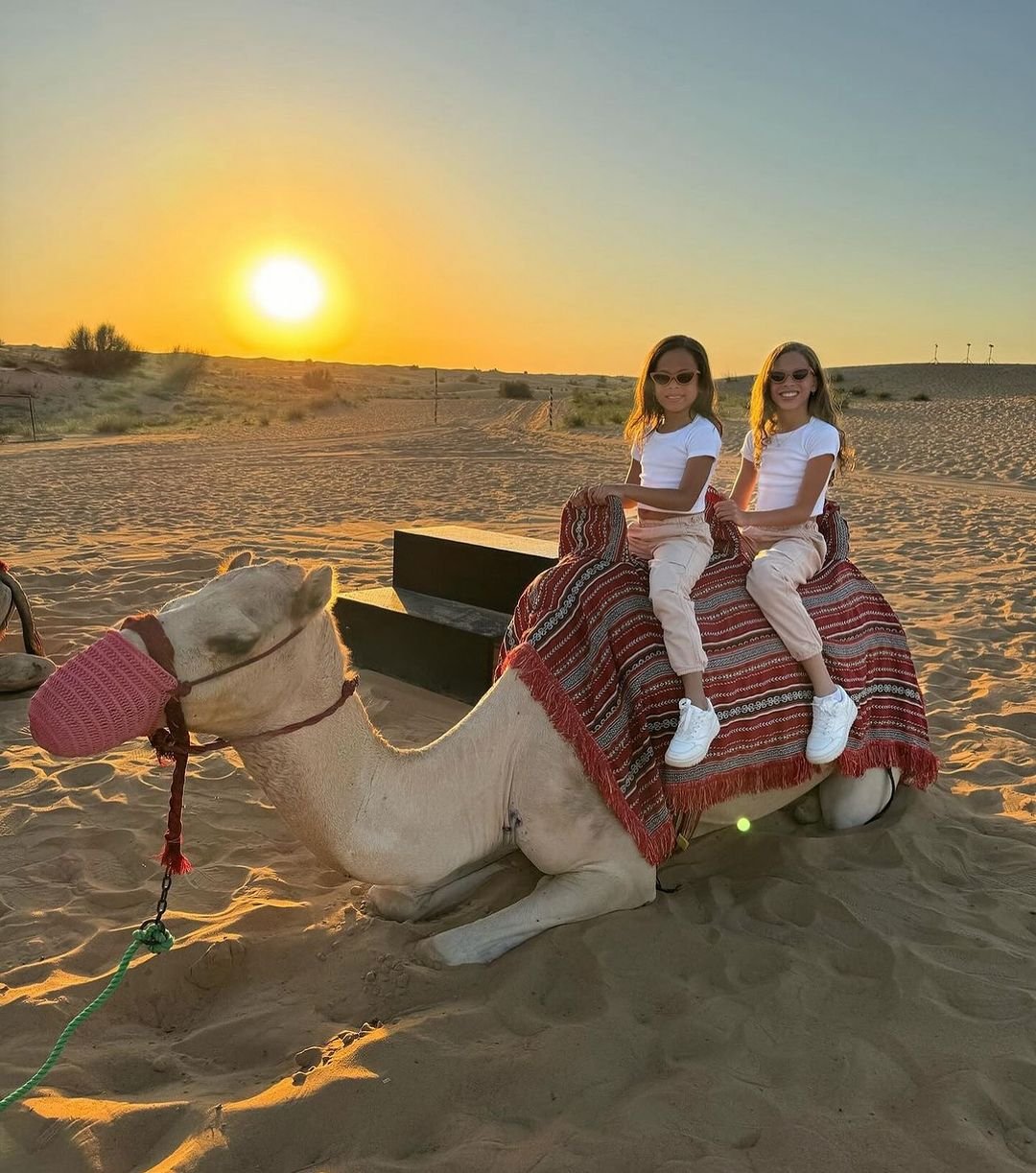
Ultimate Adventure with Our Desert Safari Dubai Packages
Dubai, a city synonymous with luxury, innovation, and breathtaking landscapes, offers an array of experiences for travelers. Among these, the

Culture In Dubai’s Desert Safari tour about much more than thrilling dune bashing and calm camel rides; they serve as an entrance to the deep Bedouin culture that has defined this region’s heritage. You will discover that experiencing the Bedouin way of life is an important part of any time on a desert safari, lending depth and authenticity to your adventures.
Discover Snippets Of The Bedouin Culture
For centuries, the Bedouins, a nomadic Arab tribe, have wandered in and around Middle Eastern deserts. A Camp Heritage and Living—The way of life, traditions, and lived knowledge regarding the desert landscape that bags an overnight stay with Bali travel agencies offer in Dubai Desert Safari tours. The moment you step into a Bedouin-style camp, the environment around you replicates the hospitality of Bedouins.
Traditional Bedouin Camps
Up Close And Personal With The Traditional Bedouin CampAt the center of numerous desert safari treks lies a customary Bedouin camp, arranged to give explorers an inside take gander at Batavian life. Typically, these camps are established in the heart of the desert, unlike Lawrence camp, bedding on the ground with low seating and cushions, creating a jubilant dusty bottom-up scenic environment. The camp setup is based on a traditional Bedouin tent made out of goat hair designed for comfort and decor.
Innovative Cultural Activities & Entertainment
The culture thrives in music, dance, and storytelling—all of which are wonderfully embedded into the best evening desert safari. Live the vibes of olden times with traditional camp entertainment until sundown (such as belly dancing and Tanoura dance). Just about every social event amongst the Bedouin tribes is accompanied by intricate dances around a bonfire, while Tahawa or singers accompany on drums (most likely slapped goatskins) and chanting.
Traditional Cuisine
In Bedouin culture, food is central – and many desert safari tours include a BBQ-style dinner showcasing traditional Arabian dishes. This involves dining on such dishes as grilled meats, hummus, and falafel, served with many fresh salads made from local ingredients that the Bedouins do not want! For an authentic Bedouin taste, dine under the stars while desert winds whisper around you.
Bedouin Camels: The Bedouins
It is a must-do camel ride on any desert safari, as this is an ode to the historical use of these by nomadic Bedouins. The Bedouins utilized camels for transport, trading, and even as an accountable food source in the harsh desert conditions. The most peaceful way for people to explore the desert and experience a piece of history is possible through the Desert Camel Tour every day, allowing travelers to feel in touch with an ancient Bedouin method used today.

Handicrafts And Souvenirs
During most desert safari tours, you will experience unique Bedouin arts and crafts, such as weaving, pottery, and jewelry. Those handicrafts display the Bedouin’s remarkable craftsmanship and cultural expression; it is commonly seen at little markets or shops inside the camp. Buying these souvenirs helps Bedouin artisans and gives you accurate contact with the heritage of the Bedouin.
For Winds Of African Countries
During a desert safari tour, It is essential to treat the interaction with Bedouin culture in a respectful manner. Many tour operators offer cultural overviews and advice about proper etiquette so that visitors understand what they are seeing as well as how to honor the traditions of others best. The single-room design offers cleanliness and strength that preserves the authenticity of the character of the mosques and homes while amplifying Bedouin life for visitors.
Significance of Bedouin Hospitality: Core Of Desert Life
One of the foundations on which Bedouin culture is based lies in being known for the reputed hospitality they typically afford guests exploring desert safari tours. The Bedouins – those nomads of the desert whom so far no foreign power has conquered or even subdued, and who have helped in part to destroy much that was British last summer (as they had also tried to exterminate their non-irredentist tribe neighbors) – the Bedouins love a guest. Camp staff offering a warm and serious-faced welcome. This same cultural value is not only projected in your greeting at camp but vibrates through the people sitting across from you for dinner each night, heartachingly genuine smiles beaming back.
Storytelling And Lore
This Bedouin culture is a testament to the oral tradition of storytelling (stories and fables) that are told during evening safari experiences, imparting this wonderfully richest facade in Arabia. Relax by the campfire as you are told stories of ancient Bedouin legends, historical accounts, and poetry committed to memory over numerous generations. The tales give an understanding of the Bedouin values, beliefs, and way of life, which form their culture. The stories entertain us and inform us of the history and culture that naturally evolve in a desert landscape.
Desert Survival Skills And Demos
Several desert safari tours include exciting, educational, and traditional demonstrations to show you some basic Bedouin survival skills. Those demonstrations could be as simple as reading the desert and itsit’s natural landmarks for navigation or displaying conventional ways of making fire using tools from ancient crafts, among many other methods used to this day, to survive. This knowledge gives insight into how the Bedouins survived and flourished in this well-earned desert.
How Bedouinism Has Evolved Over Time
Desert safari in Dubai embodies the original Bedouin way of life but has also been adjusted to accommodate modern-day living. Some have incorporated modern lifestyles, but they all maintain their cultural identity against other cultures. This culture, matched with a contemporary twist of conveniences, is reflected in safaris, where tourists can experience actual cultural elements while retaining all the comforts. Visitors who can trace this evolution will explain how Bedouin culture has evolved with modern life yet hung onto its heart and soul.
Inspirations On Bedouin Architecture And Design
One of the other exciting parts of Bedouin culture shown in cherishing safari visits is their structure, style, and design influences. Not only are these tents practical, but they also reflect the Bedouin aesthetic and ingenuity. The camp setups can also incorporate alternative types of more modern designs; you will see this on safari tours (more about that in a bit). Traditional decorative patterns, hues, and tools mirrormirror the ancient style of Bedouin structure frameworks and provide guests with an aesthetic environment.

Bedouin Music And Studio Dance
Desert safari tours, on the other hand, include a taste of Bedouin music and dance, which are essential parts of Bedouin heritage. By night, enjoy traditional Bedouin music, with drums and stringed instruments, to see out the day on a high. Rhythmic beats and melodic tunes invite us into the scene, which our imagination paints around the serene beauty of a desert landscape. Dance performance takes on a traditional dimension, with Tanoura and belly dancing showing art forms essential to Bedouin social life. Such musical and dance elements add to the safari experience, giving visitors a platform to interact with and enjoy traditional cultural expressions of Bedouin life.

Dubai, a city synonymous with luxury, innovation, and breathtaking landscapes, offers an array of experiences for travelers. Among these, the

Dubai, known for its modern skyline and luxurious lifestyle, also boasts one of the most magnificent natural landscapes in the